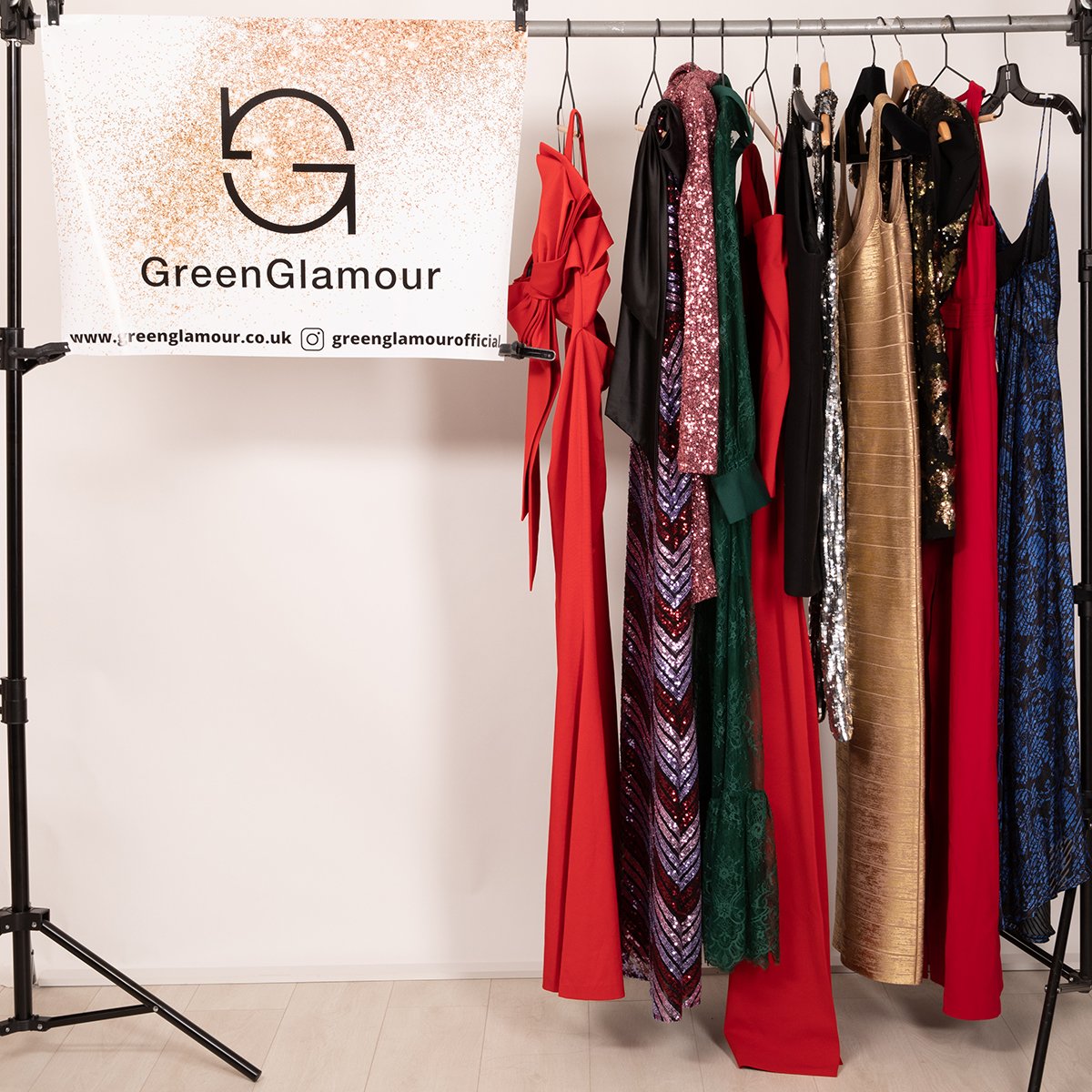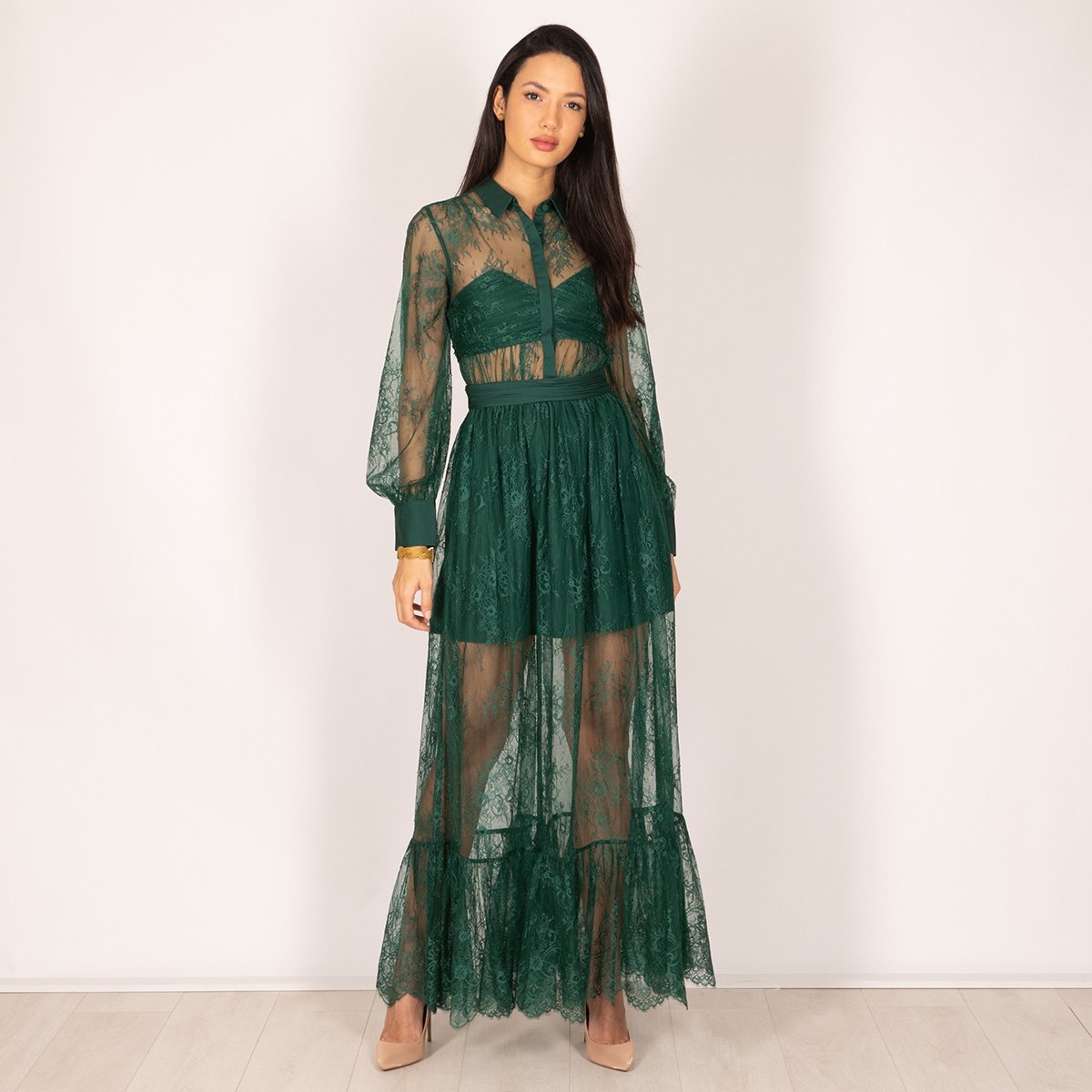Guest Blog: Own your night, not your dress
Own your night…not your dress
Sarah Malek, founder of ESGmark® member Green Glamour on how to dress sustainably this festive season.
In recent years, our closet have been rapidly expanding. Fast fashion companies made us think that we need to own large amounts of garment– that’s how they make money. This has lead to our wardrobe including more pieces than ever, while keeping an average garment for a much shorter time.
However, this mindset of needing to own more and more cheap clothing is devastating for the environment and the people making our clothes, as well as for our wellbeing. According to the United Nations Environment Program (UNEP); the fashion industry produces 20 per cent of global wastewater and 10 per cent of global carbon emissions - more than all international flights and maritime shipping
Currently, most of us own the majority of the clothes we wear – and whether your closet is big or small, there are several limitations associated with this. Firstly, think about the last time you wore a garment to death, to a point when there was no way it could be re-worn again. Chances are, this doesn’t happen very often. Most of us end up disposing of clothes that could still be worn – which is why 84% of unwanted clothing ends up in landfills (including a significant portion of that which is donated). It is shocking to know that the estimated cost to the UK economy of landfilling clothing and household textiles each year is approximately GBP 82 million (USD 108 million).
Owning clothing is especially environmentally harmful if you’re somebody who likes to switch up their look often. You may then find yourself in a situation where you’re torn between your sense of style and the desire to act more sustainably, which you can’t possibly resolve when you own all the clothing you wear. Lastly, we must not forget that we live in times when property costs are skyrocketing. Whether you’re renting or own your home, every square foot of space is becoming increasingly expensive. Therefore, we should be giving more thought to how we utilise this space. A closet takes up significant square footage, which could otherwise be used as living space – and the more variety you want, the more space you need.
Renting clothing as a sustainable solution: Renting clothing is an emerging solution to many of the issues of owning all the clothing you wear. In the past most of us were only used to rent clothing for special occasions; when this is an option we could make use of on a regular basis. By opting to rent , we could cut down on a significant portion of our clothing waste, as every garment would be used to its full potential instead of being thrown away and adding to the existing textile waste piling up in our landfills.
This is a switch the current fashion industry desperately needs. Renting can also allow us to dress sustainably while keeping our outfit varied and switching up our style – an ideal solution if you’re looking to figure out what works best for you without spending a lot of money or endangering the environment. Above all; choosing to rent frees up a lot of space that would otherwise be filled with out-of-season garments we haven’t gotten around to wear much.
It’s time to change our shopping habit to protect our precious planet.
The circular and sharing economies will become ever more important as we transition to a carbon neutral way of living. To find out more on these topics, we have a two-part guide to the circular economy.
Sustainable fashion will be central to this and ESGmark® member KAIA Clothing recently spoke to us about the responsibilities of the fashion industry.
And for a quick run down on why this is all so important, click through to our introduction to the UNs Sustainable Development Goals.




